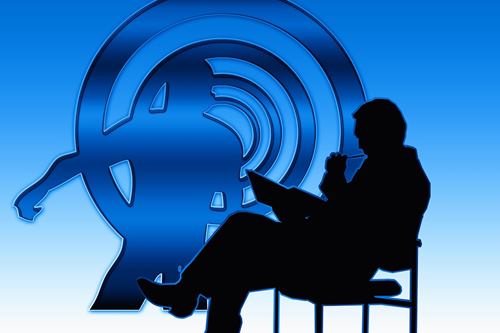Hypnoanalysis and Hypnotherapy
As part of my professional self-development I am reading books based on other therapies. I am interested in what I might learn about my assumptions in how I do therapy, and about hypnoanalysis. I chose to read The Examined Life because I wanted a perspective from psychoanalytical therapy. The book is a collection of stories about patients by a well-known American psychoanalyst based in London.
Differences in approach
One of the most striking things to me is the basic psychoanalysis approach to therapy. I see most of my clients for one hour and never see them again. His clients see him five times a week, and continue seeing him every day for years and years. There is no expectation of making any immediate change.
The type of client he treats is also very different. Only seriously wealthy people can afford to pay for therapy five hours a week for years. Therefore, his approach to them is quite different. It is an approach of almost diffidence, doing nothing to upset or alienate the client, and the income stream.
Another curious aspect of psychoanalysis practice arises out of the limitless number of hours available. Grosz recounts several patients where neither he nor the patient said anything for an hour. They both sat there in total silence, waiting for something to happen. I doubt any hypnotherapist has ever done that.
Applying psychoanalytic principles to hypnoanalysis
It seems to me that psychoanalysis is basically a form of Reframing. The object is to get the patient to recognize some key element of their behavior, and understand that behavior as representing something else. That last sentence is actually the definition of 'metaphor'. It seems to me that he was constantly seeking a metaphor to explain his clients' behavior. And just like reframing, the theory is that realizing that you can see things in different way, to have different explanation, is all you need to cure you.
For me, the strangest part concerns the relationship between the Analyst and the Patient. For Grosz, the analysis can not make progress until a proper relationship is established. It is not friendship, it is not advisory, it is something unique to psychoanalytic training. There is nothing like that in hypnotherapy.
Freud and hypnoanalysis
Grosz is a Freudian psychoanalyst. His therapeutic approach is therefore based on Freudian theory and thinking. It only comes up incidentally in the stories about his patients, but I found the Freudian worldview both startling and alien. Nothing is ever accepted for what it is. Everything is interpreted through the lens of Freudian theory. Everything is a hidden message about your mother or father.
And I found a very different approach to therapy. In the stories about his patients Grosz seems to give very little value to non-psychological causes. He often mentions in passing that his patients have an alcoholic father, or a brother in psychiatric care, or a history of depression in the family, but never seems to give any weight to the possibility that his patient's behavior may have a genetic basis. There seems to be no role for physiology.
He does not use anything from behavioral psychology, or CBT, or guided visualization, or any other direct intervention. Everything is about getting the patient to speak aloud, and then helping the patient to interpret what they just said. It is a passive approach to therapy. In some aspects psychoanalysis seems very close to non-interventionist counseling.
Overall impression
There is a lot in this book that is good. There is a lot I disagree with. It is challenging and interesting. But it is actually a very bleak book. I felt quite disturbed by the time I had reached the end of it. His underlying theme is about change and loss. He says there can be no change without loss. Whether this reflects his own personality, or the result of a lifetime spent talking to unhappy people, is impossible to say.
There are many thought provoking phrases used in the book.
"Behavior is the language we use when we have no words to express how we feel".
"My job is not to find a solution. My job is to find a useful question".
Some of his patients were deeply disturbed. And disturbing. I found it very hard to get one story out of my mind. He described working with a woman whose husband had a terminal illness. She could not cope with living with someone who is dying. In particular she was horrified by what she felt was having to have sex with a corpse.
Reflections on Hypnoanalysis
The main reason for reading this book was to challenge my own assumptions about how I do therapy. When questioning why other people do therapy the way they do, it challenges you to justify why you do therapy the way you do.
It seems to me that the principles of psychoanalysis do not transfer well to hypnoanalysis. I will not be using Freudian principles in my daily work.
However, this book has made me question my assumptions. If psychoanalysis believes that telling your story is how you make sense of your life, why don't I believe that? And what do I believe? How do I know what I am doing is right?
The examined life
How we lose and find ourselves
by Stephen Grosz
London: Chatto and Windus. 2013
ISBN 978-070–18535–0
He is highly regarded in the hypnotherapy community. He is Vice President of the New Zealand Association of Professional Hypnotherapists (NZAPH).
He is regularly consulted for advice by other hypnotherapists around the world. He is known for the quality of his published scripts. He presents at international conferences and has published on hypnosis and advanced hypnotherapy.
He lives in Wellington New Zealand with his wife Trish and a cat called Parsnip.
email: davemason@besthypnosisscripts.com
- AfterwardsnessNachträglichkeit Deferred action - 2019-04-30
- Low Fat Diet Mental Health - 2019-04-12
- Paranormal beliefs in hypnotherapy - 2019-04-09






